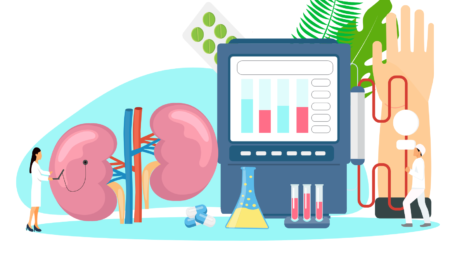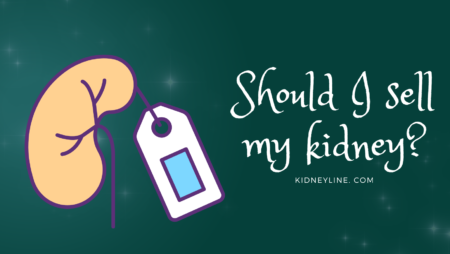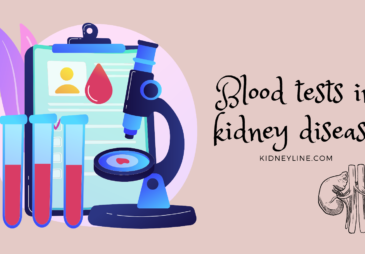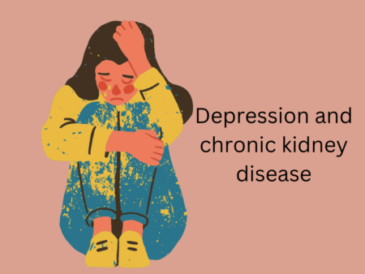Kidney donation has been a hot topic in Nigeria lately, catching lots of people’s attention. Not too long ago, a senator and his wife were jailed for trying to get a kidney for their daughter. Recently, there were stories about young boys with big scars from selling their kidneys for some cash on the news. If you’re wondering what the buzz is all about, it’s because it’s a crime to sell or buy organs including the kidneys.
You might be thinking, “Hey, it’s my body. If I want to sell my kidney, that should be okay.” But here’s the thing: almost every place in the world says selling kidneys is illegal. Why? Because it targets poor, vulnerable people. There have been stories of people being forced to sell their kidneys to pay off debts, even when they did not want to do it. People were doing anything to get the debt off their neck. The problem with this is that they could be endangering their lives.
But kidney donation is safe, you might be thinking. How could they be endangering their lives if someone could live with one kidney? And while that is true, it doesn’t mean that kidney donation doesn’t have any risks at all.
Risks with kidney donation surgery
Many people don’t know this, but the surgery to remove a kidney is a more extensive surgery than that for transplanting a kidney. This surgery often requires general anesthesia, and it is possible to react to the drug used for anesthesia. Thankfully, anesthesia is generally safe for most people, but sometimes people have problems with this medicine.
After the surgery, you could get an infection, especially if the place where it’s done isn’t clean or if the doctors aren’t super careful. But most transplant and donation surgeries are done in well-equipped facilities, and your healthcare team is likely to take precautions to lower your chances of getting an infection.
There’s also a chance of bleeding or accidentally injuring organs and tissues near the kidney while they’re taking out the kidney. But the doctors who perform these surgeries are usually experts and know how to keep things safe.

Long-term risks of kidney donation
A successful surgery does not mean the risks of kidney donation are over. This is where the trouble lies with donations for cash.
After you donate a kidney, you’ve got to take really good care of yourself. This can be tough for people who gave up a kidney because they needed money and might not be able to see a doctor all the time. If you don’t get check-ups, you might not know if something’s wrong.
You see, people who donate one kidney may develop hypertension. They need to be on medications to lower their blood pressure because hypertension can cause heart, kidney, and brain problems. But because hypertension is only discovered with a blood pressure check, people who donate kidneys and who do not go for medical check-ups may not realize they have hypertension.
Donors sometimes find more protein in their pee, which could mean their one kidney is working too hard. It is crucial to keep an eye on this because protein in the urine can cause kidney damage.
And some folks feel pain where the surgery was performed, maybe because of nerve damage.
Also, it’s totally normal to feel all sorts of ways after donating a kidney. Some people feel awesome about helping someone else, but others might feel sad or worried and wonder if they made the right choice.
Before You Think About Donating…
Kidney donation is not a decision to be taken lightly given the risks. Instead of selling your kidneys for money, consider getting creative and finding alternative sources of income. The internet has a bunch of safer ways to make money that don’t involve any risks to your health.
If You’ve Already Donated
If you’ve already gone through with it and donated a kidney, the number one thing is to look after your health. Make sure to visit your doctor often, keep an eye on your blood pressure, and try to live healthily. Drinking lots of water, exercising, eating less salt, and staying healthy are key.
All infections should be treated promptly. If you are diagnosed with a chronic medical disorder like diabetes, hypertension, lupus, HIV, chronic hepatitis, etc., ensure you take your medications.
It’s important to remember that you’re the boss of your health. Stay smart, make good choices, and do your best to stay healthy.
Giving a kidney, whether to help someone out or because you need the money, is a big decision with many things to consider. Helping others is amazing, but remember that selling your kidney is a crime in most countries.




